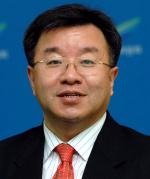
The election of Barack Obama marked a renewal of America’s promise. He is the first African-American elected president and its historical significance cannot be overstated. At least four things need to be addressed: First, the election of a black president represents a remarkable progress in overcoming one of the deepest racial divisions in the American society. Second, he is supported by the vast majority of young voters regardless of its origins and races. It signifies that new generation will take the lead in American society. Third, his election also represents a shift of the political spectrum away from the conservatives in the American society. Americans are tired of ideological dogma and voters went to the polls to place a bet on a better future by handing the power to an unlikely candidate who promised to draw people together rather than exploit their differences. Fourth, his election will reduce the gap between the North and South in their perspectives. This is a true moment for victory not only for Americans but also for those who are yearning for a post-ideological politics and a more secure and just world order. Since he has grown up in the back streets of Jakarta, Indonesia in his youth and has unusual background of understading the poverty in Africa, people outside of the core part of the world tend to have a higher expectation of his presidency.
The question is whether he can transform the world politics to satisfy every voters in the states and supporters of the global village. He is not a miracle-maker with a magic wand in his hand. It is too dangerous to expect that he will solve all those contending issues with soft approaches. He will have to deal with some of the most daunting challanges an American administration has ever faced. The markets are batttered and job losses are skyroketing and it is too difficult to find an easy way out of the current financail crisis even though G-20s are now discussing the issue. As Karl Polany brilliantly analysed in his book of the Great Transformation in 1944, this is not only financial crisis but a more complex crises of losing self-regulating market system, brakedown of balance of power and losing confidence of liberal ideas and philosophy. We vividly remebered that how the Nazism and facism slowly replaces the democratic values when paradigm is lost during the crisis in 1930s.
The real question needs to be posed here is; how we are going to be the better partner with the new President in the United States? The Obama administration will be more constrained economically and less adventurous militarily than the current administration and it will try to reach out to allies and demand a more active participation in shaping the world order. This will be the opportunity for Korea. President Lee Myung-bak has always emphasized the importance of playing a greater regional role for the sake of making a secure, greener, and more prosperous world. But, in order to become the valuable player, Koreans need to endure more sacrifices and be ready to bear the burden.
Currently, there exists an unhealthy euphoria in South Korea that president-elect will contact with Kim Jong-il soon to facilitate the normalization process as he once suggested during the campaign. However, it is unlikely that he is going to rush into Pyongyang to discuss the matter with its leader. On the contrary, he would not allow Pyongyang to go forward without proving that it completely gives up its nuclear option.
How to protect alliance from domestic politics continues to be a key agenda. Thus far, the reevaluation of new converging interests is not confirmed yet between the two governments. A comprehensive “Joint Statement for the ROK-US Strategic Alliance for the 21st Century” is needed after the inauguration of the Obama administration in January 2009. In order to do that it is better to start earlier the strategic dialogue and to discuss how we can operationalize the global Korea and show our vision and willingness to be a meaningful partner for the new American administration.


